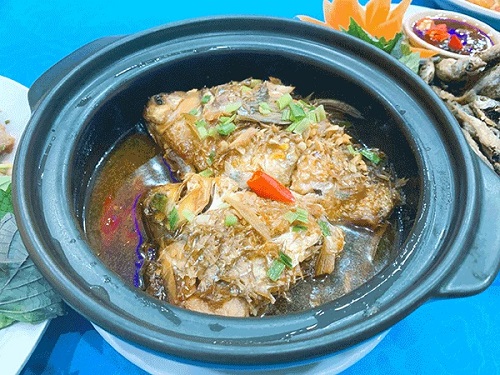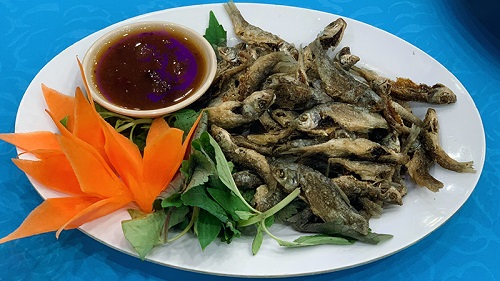
Statistics indicate that over 10,000 tons of waste are discharged yearly in the Mekong Delta region, with approximately 88.3% comprising domestic solid waste. Of this, only about 49% is collected and treated, leaving 51% to be discarded into the environment. This mismanagement leads to waste and pollution and directly threatens human health.
In Can Tho City alone, the generated domestic waste rises annually. In 2022, about 653.9 tons of garbage were produced each day. In 2023, this figure increased to approximately 680.9 tons per day; in the first nine months of 2024, it rose further to about 686 tons per day. The collection and transportation of waste by districts are performing relatively well; currently, the rate of domestic solid waste collected and treated is 98.78% in urban areas and 74.58% in rural areas.
Uncollected domestic solid waste is primarily found in remote rural areas where narrow roads make vehicles challenging to access. In these instances, households often resort to methods such as burning, burying, composting organic waste, or using it as animal feed to manage their waste.
Due to the urgent need for effective management and treatment of solid waste in the Mekong Delta region, Can Tho Union of Friendship Organizations recently collaborated with Can Tho University and the Friedrich Naumann Foundation (FNF/Germany) to organize a workshop titled “Solid Waste Management Models for Smart Cities.” This workshop introduced a new approach that utilizes digital technology in solid waste management, including innovative waste treatment methods and strategies for managing domestic solid waste as part of developing innovative city models.
Ms. Le Thuy Ngoc Lan, Vice President of Can Tho Union of Friendship Organizations, stated, “Environmental pollution from solid waste is a pressing issue for developing countries and Vietnam in particular. As the main organization responsible for mobilizing foreign non-governmental aid for the city, Can Tho Union of Friendship Organizations has connected the Friedrich Naumann Foundation, a foreign non-governmental organization, with scientists from Can Tho University to implement a project aimed at developing a smart city model. This project uses technology to transform solid waste into valuable resources.”
During the workshop, several technological solutions were proposed. Associate Professor Dr. Nguyen Chi Ngon, Vice Chairman of the Can Tho University Council, emphasized the necessity of developing an intelligent waste collection system. This system would utilize automatic technology and cloud computing, incorporating Internet of Things (IoT) sensors in trash bins. This integration would optimize collection routes and schedules based on real-time data, allowing for data-driven decision-making, waste trend predictions, and improved waste management policies.
Moreover, the classification and recycling processes should also be automated using artificial intelligence (AI) and robotic systems. By doing so, we can minimize the shortcomings of the traditional model, which relies heavily on human labor. This advancement would enhance the accuracy of waste classification and significantly speed up the recycling processing time.
Dr. Nguyen Xuan Hoang from Can Tho University emphasized that in the Mekong Delta region, landfill remains the primary method for waste treatment, accounting for 83% of the total. Among these, at least 161 landfills utilize outdated and rudimentary technology. This situation highlights the urgent need for coordinated efforts—from policy to implementation—to develop a comprehensive model for sorting, collecting, processing, and using recycled materials from waste.
Specifically, it is essential to promptly enforce the law on waste sorting at the source and treat littering and failure to sort waste as violations. Furthermore, automatic sensors should be installed in trash bins and garbage trucks to monitor fullness levels. This technology could also be the basis for calculating garbage fees based on the amount of waste generated by each household rather than a flat rate as is currently practiced.
After waste is collected at the factory, an automatic sorting and treatment process using robots is necessary. This approach will minimize the risk of respiratory diseases among sanitation workers and lower the costs associated with toxic subsidies. Additionally, the waste treatment process generates compressed air, which requires a technological solution to connect to the pipeline system that supplies compressed air to various facilities. This connection will help reduce emissions and conserve raw materials. Overall, these solutions aim to optimize resource allocation, decrease operating costs, and enhance the sustainability of the waste treatment process.
Alongside the need to utilize technology in solid waste treatment, many scientists have proposed combining effective communication with strict legal measures to enhance public awareness. Every citizen must act as an ambassador, a champion against environmental pollution caused by solid waste. This can begin with small, practical actions, such as reducing the use of plastic bags, sorting waste at its source, and preventing littering.
Mr. Pham Nam Huan, Deputy Director of Can Tho Municipal Department of Natural Resources and Environment, emphasized that the city previously classified waste at the source into three categories: non-burnable waste, hazardous waste, and burnable waste. However, with the implementation of the Law on Environmental Protection 2020 on January 1, 2022, this classification was no longer deemed suitable.
On November 2, 2023, the Ministry of Natural Resources and Environment issued Official Dispatch No. 9368/BTNMT-KSONMT, which provides technical guidance on classifying domestic solid waste according to the waste treatment technology applicable in the area.
Can Tho Municipal Department of Natural Resources and Environment coordinate with relevant units to develop policies and legal documents to guide the implementation of domestic waste classification at the source. This includes regulations on managing domestic solid waste in Can Tho City, clearly outlining the responsibilities of waste source owners, the general public, waste collection and treatment units, and state management agencies.
Source: Cantho News - Translated by Hoang Dat












